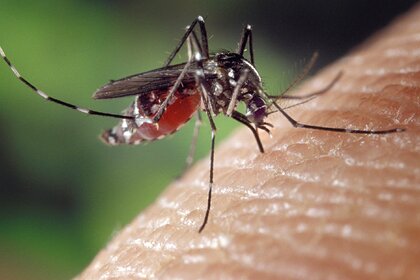
Russian and American scientists have collected the genome of mosquitoes to wean them from drinking human blood or carrying parasites that cause malaria. This was reported to “Interfax” in the press service of the St. Petersburg University ITMO.
The mosquito genome is expected to facilitate the fight against malaria. The new data will help to find the regions of genes responsible for the transmission of the disease, and will make it possible to ensure that malaria mosquitoes either stop feeding on human blood or do not carry parasites.
The genome of mosquitoes contains approximately 300 million characters, which is ten times less than that of humans. Moreover, insects have only three pairs of chromosomes. To collect the genome, material from the entire mosquito colony was used, so DNA from many individuals got into the sequencer at once. “As a result, we see all the individual differences of individual mosquitoes that need to be leveled in order to assemble a reference genome,” said Anton Zamyatin, an employee of ITMO's Research and Education Center for Genomic Diversity.
It is clarified that earlier scientists had a reference genome of only one species of Anopheles gambiae, but now they have two more species of African malaria mosquitoes at their disposal: Anopheles coluzzii and Anopheles arabiensis.
In 2019, scientists from the Siberian State Medical University found out which blood group is most often bitten by mosquitoes. According to experts, the most attractive “victims” are people with blood group I. According to the study, they are bitten twice as often as representatives of group II.

